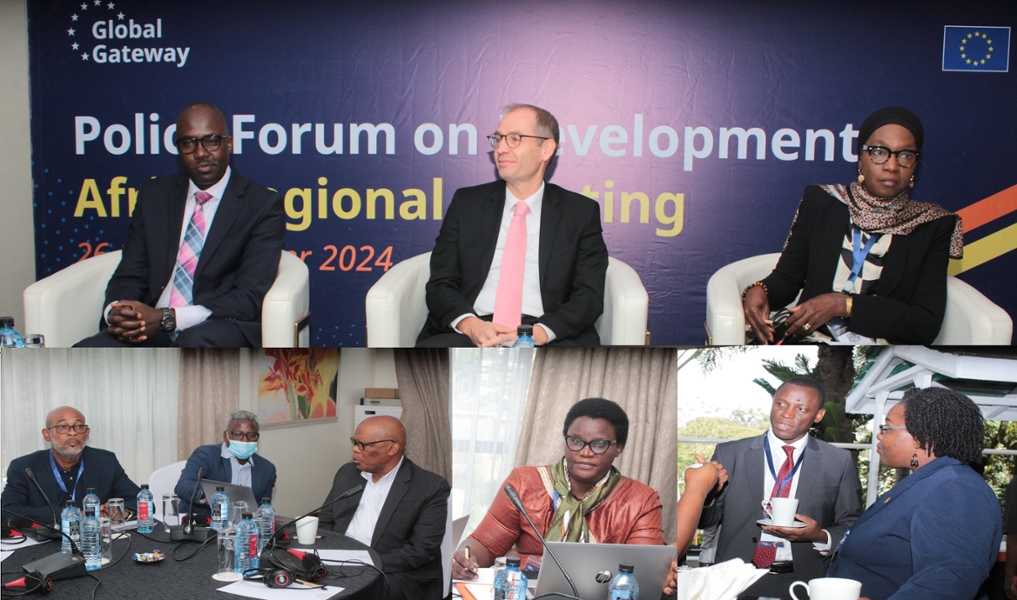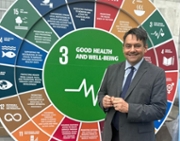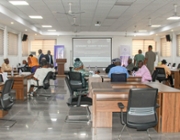EU Policy Forum for Development in Africa

19 December 2024
The European Union’s Policy forum for Development (PFD) met on 26-27 November in Nairobi (Kenya) to discuss key issues of EU development policy jointly with key representatives of local government and civil society from across the African continent.
Platform for openness and transparency
The PFD is a dialogue platform for open and transparent exchange to enhance the effectiveness of EU development cooperation. It brings together civil society organisations, local authorities, professional and business associations, and representatives from EU institutions and Member States. The meeting explored the role of local authorities and civil society in advancing EU development efforts and fostering inclusive, sustainable, and locally-led investments across Africa. The first regional PFD since the covid-19 pandemic, the meeting was a timely moment to review progress on the commitments made during the 2022 Africa-Europe Summit. It was also an opportunity to discuss the opportunities and challenges inherent in the EU’s new Global Gateway approach to development cooperation.
Investment in five sectors
The Global Gateway is the EU’s strategy to mobilise up to €300 billion in investments (€150 billion for Africa) in five sectors:
- digital
- climate and energy
- transport
- education
- research and health.
There are significant questions around access to, and representation of both local government and civil society in decision-making processes for Global Gateway projects at country and regional level. The meeting was opened with representatives from the Kenyan Government, and the EU Delegation to Kenya shared their perspectives and process in navigating the partnership, and balancing investment priorities with debt commitments and citizen asks on the ground.
Good practice in Kenya
A presentation of key flagship programmes and existing and expected consultation mechanisms in Kenya demonstrated a set of good practices available to EU country delegations across the wider region. The Kenyan Delegation committed to working with Kenya’s Council of Governors to ensure the voice and priorities of local government were reflected in its programming going forward. There was a call from the local governments at the meeting to ensure a similar mechanism for dialogue and partnership is put in place in all African countries as the EU moves forward with the €150billion investment that was committed in the 2022 Africa-Europe Investment Package.
Exploring key issues
Over the course of the meeting, participants also had a number of opportunities to drill down on key issues of importance, including financing basic services, modalities for ensuring just transition, addressing climate change and environmental degradation and peace, security and migration. It was agreed that:
Basic services are public services, and while there may be different modalities for financing these, national government must ensure access, affordability and accountability for all. Peace and stability are essential for development and underpin access to basic services, and the ability to finance basic services, climate mitigation and adaptation messures.
The link between poverty and climate vulnerability must be at the core of the just transition and the most vulnerable must be supported to access sustainable livelihoods in safe and resilient settlements. Local Economic Development (LED) is a holistic way to plan and coordinate local investments, support local businesses, small producers, and increase local livelihoods while feeding into wider national, regional and continental development. Clean growth most be at the core of development with support in place for SMMEs to develop business models that take both nature and the investment environment into consideration.
With regard to EU financing and the Global Gateway, participants stressed the importance of taking the debt burden of African governments into consideration when agreeing Global Gateway loans. The local government participants stressed the importance of support to decentralisation and the recognition of local government as state actors in the territory, in line with the European Commission (2013) Communication on ‘Empowering Local Authorities in partner countries for enhanced governance and more effective development outcomes’. There was a call to Support capacity building and exchange and to increase coordination and partnerships between CSO, NGOs and LAs to work together, and for the EU to recognise these partnerships as viable modalities for implementing elements of the Global Gateway and Team Europe investments.
Hon David Alabi Kolade, CLGF vice-Chairperson, reminded all participants that 'both civil society and local government have an important role to play at the local level. These are different but complimentary roles, and we are looking to the EU to accompany these partnerships to ensure the best for our citizens.'
These key messages will be circulated throughout the PFD membership and to the EU delegations across Africa. The upcoming Global Policy Forum for Development meeting will take place in 2025 in Brussels and will also allow these issues to be shared and discussed with PFD members from across the globe.
Back to News





